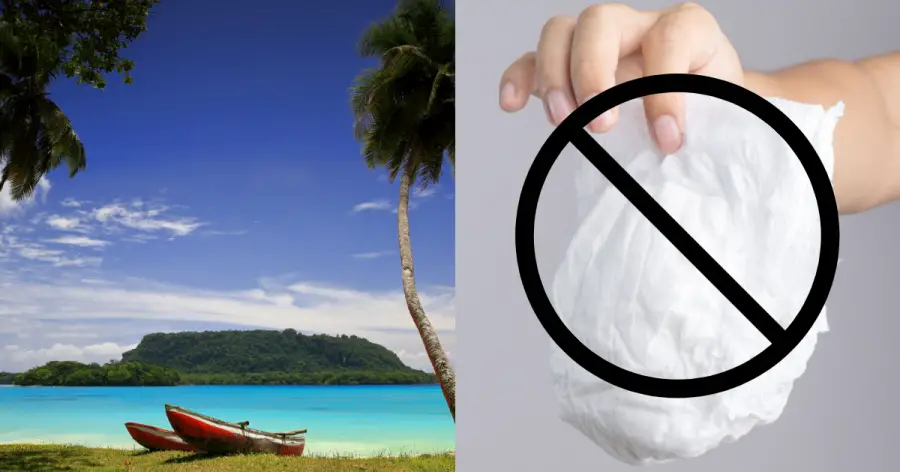Vanuatu A Pacific Nation To Be The First To Ban Disposable Diapers
Tags: opinion

You may not have heard the name Vanuatu, a small archipelago in the Pacific Ocean. But this small, unpopular archipelago is making strides in something that the entire world is facing – plastic pollution. It comes with a sacrifice – but they are willing to take it after looking at the grim future.
The nation dreams of becoming one of the forerunners of ‘no single-use plastic’. And now, they are getting rid of disposable diapers. The nation already has a tough ban on single-use plastic. They face the menace of plastic pollution and rising water levels. According to the Minister of Foreign Affairs, Mike Masauvakalo, plastic will eventually seep into water bodies and find their way into the food of the people, ultimately leading to humans consuming plastic. Hence, the bans are necessary.
Also read: Goods Packaged With Non-Recycled Plastic To Cost 10% More In France Under New Plan
But this time, the ban will be directly affecting motherhood. Diapers do contain a lot of plastic which might takes years to decompose. But they help mothers take care of their children too. In a country with about 250,000 strong population, parents were clearly outraged. Many people from the women’s group saw it as a move against mothers, putting women back by decades.
It’s a difficult decision, of course, but the government is clearly looking after the ‘future’ of the nation. Thomas Maes, working for the Commonwealth Litter Programme has mentioned that even though Pacific Islands, owing to their low population, may produce less plastic, it still contributes to the global plastic menace due to the use of poor waste management methods.
Over 5000 people have downloaded our free ebook “Growth Hacking Tips And Rituals For Optimal Living” CLICK HERE to get your free copy now
Are plastic bans effective? Well, it was when the single-use plastic ban was introduced in Vanuatu. A survey did a month after the ban showed that household plastic rubbish reduced to 12% compared to the 15% to 18% as recorded back in 2010 and 2014.
Also Read: Canada Will Ban Single-Use Plastics By 2021 Says Justin Trudeau
Masauvakalo believes that the people of the country will be backing the decision. They are already facing a problem with food supplies due to the presence of plastic and so, this ban will be effective to prevent a future emergency.
On the other hand, when such a ban was hinted in the UK, a huge outcry from the women’s group made politicians retract it as soon as possible.
It’s clear that we need to find an alternative that does not harm mothers nor the planet. Hopefully, our scientists can shed some light on it.
Leave Comment: